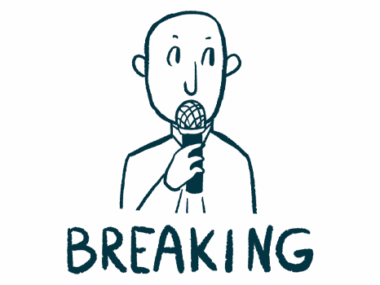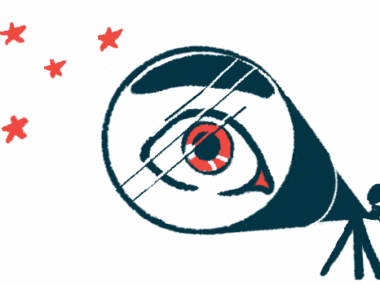Wishing for a world without HD progression — or yardwork
A casual conversation results in a difficult admission, then understanding
Written by |

During a recent walk in our neighborhood, my wife, Jill, and I admired the colors of the leaves on the trees while enjoying the mild winter weather we’ve been experiencing.
We talked about our love-hate relationship with trees, leaves, and yardwork, and how Huntington’s disease progression affects Jill’s ability to deal with all of it.
“I love the leaves when they change colors,” I said.
She agreed but noted, “The problem is what happens after they change colors. They fall to the ground.”
I smiled. She had shared that opinion several times, so I thought I knew where our conversation was headed.
I was wrong.
“Until we moved to Maryland, I didn’t understand how much work is required to maintain a yard,” she confessed. “If I were in charge of the world, every year the leaves would change colors but remain on the trees.”
Because I go to work before the sun rises and return home after it sets, I rarely notice the lawn and didn’t realize how much work Jill was doing. I told her she had a good point, but then took it a step further.
We’re currently renting the home where a tree fell on my sister while she was sitting in her car, which led to her death. I told Jill I wished branches and trees never fell, either.
She squeezed my hand and explained: “I’m not used to doing yardwork. In Pennsylvania, where I was born, I didn’t do it because I was too young. And then in Florida, the palm trees didn’t shed their leaves. And when we lived in Illinois, we didn’t have a lawn to take care of because we were in an apartment.”
Jill paused — something that happens more often these days as her Huntington’s disease progresses, affecting her ability to communicate and process thoughts.
“When we moved to Maryland, into the house where something horrific happened to someone you loved, I wanted to do all the yardwork. I didn’t want you to have to deal with what was essentially your sister’s killer,” she said.
I was taken aback.
I hadn’t realized she was doing all the lawn care to protect me. When we moved, I was working about 60 hours a week and driving 2.5 hours a day to commute. She insisted at the time that she was looking for work and had time to do it. When I started to explain (or argue) that I could do it on the weekends, she shut me down by telling me it was good exercise for her.
Then, for the first time since I met her, Jill admitted she couldn’t do something. She said she had to stop doing all the yardwork.
“It’s too hard for me to do everything that needs to be done,” she said, referring to raking, breaking the branches that fall to the ground, mulching, stuffing the leaves into large trash bags, and so on.
I knew how difficult it was for her to admit she couldn’t do the work, but knowing why she wanted to do it in the first place made my heart break twice. She added that she didn’t want to talk about it anymore, so I squeezed her hand, and we walked on in silence.
When we arrived back at the house, I told her I loved her and felt helpless. We sat down on the couch and, without words, she laid her head on my shoulder. I knew there was nothing to say right then. Words couldn’t fix what was breaking inside her.
So I didn’t talk. I didn’t make things better. I didn’t try to fix anything. I just sat there with her for the rest of the afternoon.
I know that Huntington’s progression will continue to make our lives a constant war, one we will fight until a treatment is found. This battle may have felt like a loss, but for Jill, finding out that the world doesn’t fall apart when she admits she can’t do something is a win.
Note: Huntington’s Disease News is strictly a news and information website about the disease. It does not provide medical advice, diagnosis, or treatment. This content is not intended to be a substitute for professional medical advice, diagnosis, or treatment. Always seek the advice of your physician or other qualified health provider with any questions you may have regarding a medical condition. Never disregard professional medical advice or delay in seeking it because of something you have read on this website. The opinions expressed in this column are not those of Huntington’s Disease News or its parent company, Bionews, and are intended to spark discussion about issues pertaining to Huntington’s disease.




Sean
Wonderful article. Hit home for me as my wife has HD and we are struggling daily. The helplessness you feel when you can’t fix a problem as a caregiver resounded with me. The silence of mutual understanding sometimes is so powerful, and so depressing…thank you. Certainly helps to know you’re not alone in the type of daily routine we go through as HD families.
Carlos Briceño
Thank you for reaching out and sharing your insightful thoughts. Being alone when struggling is so isolating. I am glad you are able to feel comfort when you read what we share.
Rebecca Field
Beautifully written, so moving and so familiar to us families in the HD community. Witnessing our loved ones losses but also their bravery. X
Carlos Briceño
Thank you!
I have appreciated your recent columns. I am sorry we are part of the HD community, but I am happy to see the strength and love you bring to it.